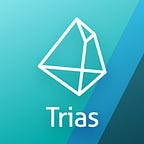TL;DR
As a Trias ecological project, Triathon has released a new version. Triathon is positioned as a gamified blockchain testing engine. It is committed to enabling users to participate in blockchain security testing in a low-threshold way and obtain the most intuitive test data, so as to make reasonable investment decisions based on the test results. Triathon also allows project owners to conduct third-party security testing and optimize smart contract code to reduce security incidents.
In the world of Web3.0, all application functions are implemented through smart contracts, and because so much value is traded through or locked up in smart contracts, this makes them tempting targets for malicious hackers, and small coding errors can lead to huge amounts of money being stolen.
In addition, blockchain transactions are irreversible, and it is very difficult to fix vulnerabilities or recover assets after security incidents. Therefore, detecting the security risks of smart contracts is undoubtedly the most important thing for both developers and users.
Triathon is a gamified blockchain test engine that can be used to detect blockchain smart contract vulnerabilities. Users can independently deploy and test smart contracts on the test platform, which is a comprehensive platform integrating smart contract development, testing, and verification.
In the process of verification, the platform, using the technology of formal verification, carry out the execution environment modeling, verifies the security properties by a variety of technical means, detects the possible security problems when the contract is running, helps developers find the potential safety hazard in the contract, positions position of bugs, and enhances the safety of the contract.
Triathon provides a low-barrier way for users to participate in security testing in the form of games. Triathon presents various test codes in the form of NFT. Each NFT represents a unique test case. When the user stakes these NFTs, the corresponding test event can be triggered, and the user can intuitively observe the test results on the Triathon data panel. And according to the test results, they will form their judgment on their own investment.
To encourage users to participate more actively, Triathon also rewards them GEON if they stake to test. Those with a technical background could develop their own test cases. These use cases can be sold to users without a technical background in the form of NFTs for revenue.
For projects, no matter how excellent the development team is, there will be limitations because they are human. To solve the problem, Triathon will act as a third party to provide testing ideas, break the limitation, and help the team to improve the contract code; In addition, it will be a huge cost for the project to independently build test environments for multiple projects. Since bugs are probabilistic, long-term deployment and maintenance of test environments for probabilistic events will result in low ROI. Triathon can greatly reduce the development, operation and maintenance costs of the project.
Official website: https://www.trias.one
Whitepaper: https://www.trias.one/whitepaper
Telegram: https://t.me/triaslab
Twitter: https://twitter.com/triaslab
Discord: https://discord.gg/uSHpezwKWZ
Notion: https://www.notion.so/Trias-62b0088a57a74c62b22099206464426d
Trade on Pancake: https://triaslab.medium.com/how-to-buy-trias-on-pancakeswap-d9bd1628e69f
